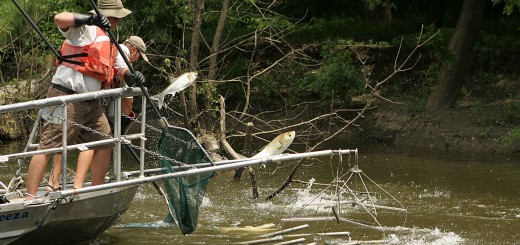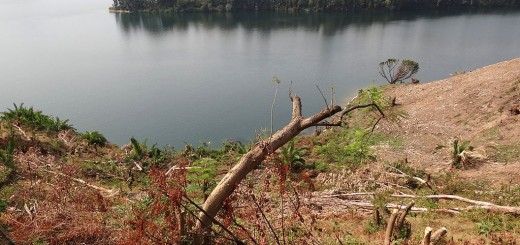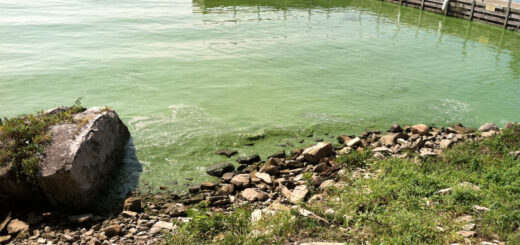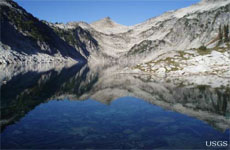Ashumet Pond Nitrogen Questions
0A lot of attention has been given to the role of runoff in spurring harmful algal blooms. But what about the actions taking place beneath the surface via groundwater? It’s not always easy to capture data in this zone, but scientists at the U.S. Geological Survey have given it a shot.
In a recent investigation at Massachusetts’ Ashumet Pond, they led a group of researchers, including others from the Virginia Institute of Marine Science, looking at the interactions taking place between groundwater around the small Cape Cod lake and the water it holds.

A sampling grid in Ashumet Pond, Cape Cod, Massachusetts. (Credit: U.S. Geological Survey)
In part, their results show that additions or reductions in nitrogen through groundwater movement can be a bit hard to predict. In different areas, they were able to chart both the movement of nitrogen into the lake as well as its transport out.
Some of the dynamics going on have to do with water flows and levels of dissolved oxygen. When nitrogen was flowing into the lake, scientists saw that microbes could actively remove some of its harmful forms when dissolved oxygen was low in the groundwater. This wasn’t seen, though, at a location where little nitrogen was flowing in and oxygen in the groundwater was high.
Interactions were different when water was seeping out through the lake’s sediment into groundwater. When this happened, nitrification converted the nitrogen trapped in the sediments into nitrate, which was then shipped out of the lake by groundwater movement.

A sampling grid in Ashumet Pond, Cape Cod, Massachusetts. (Credit: U.S. Geological Survey)
Findings of the work show that lakes in Cape Cod can act as scrubbers for the waters that flow into them while also, at times, acting as sources of nitrogen to areas downstream. Scientists involved in the work believe that better understanding these processes will aid water quality and environmental health in the area. They may even be able to glean some nutrient mitigation techniques from the results.
Full results of the study are published in the journal Environmental Science & Technology.
How important is considering groundwater in fighting harmful algal blooms? Is it more or less important than runoff? Please consider leaving a comment to share your thoughts!













